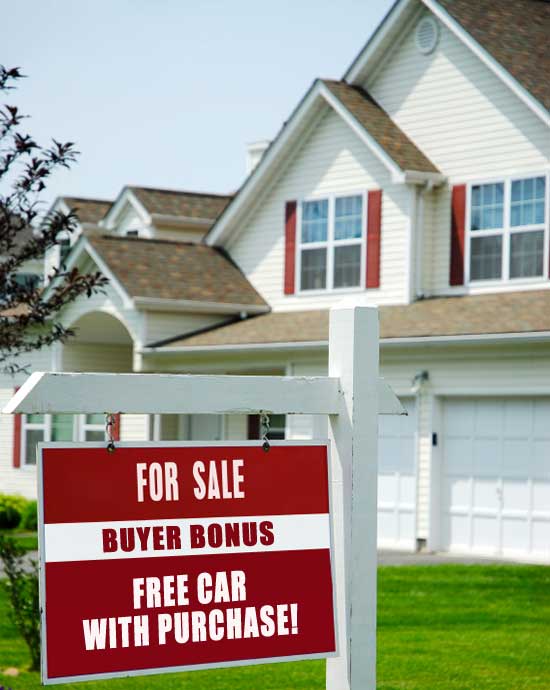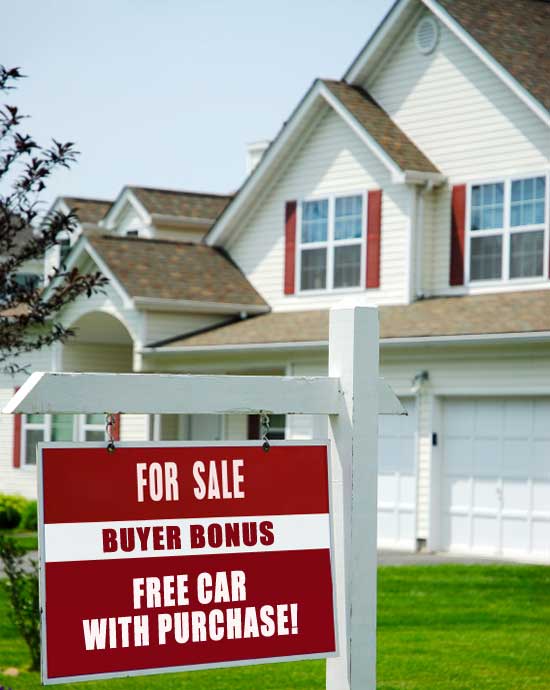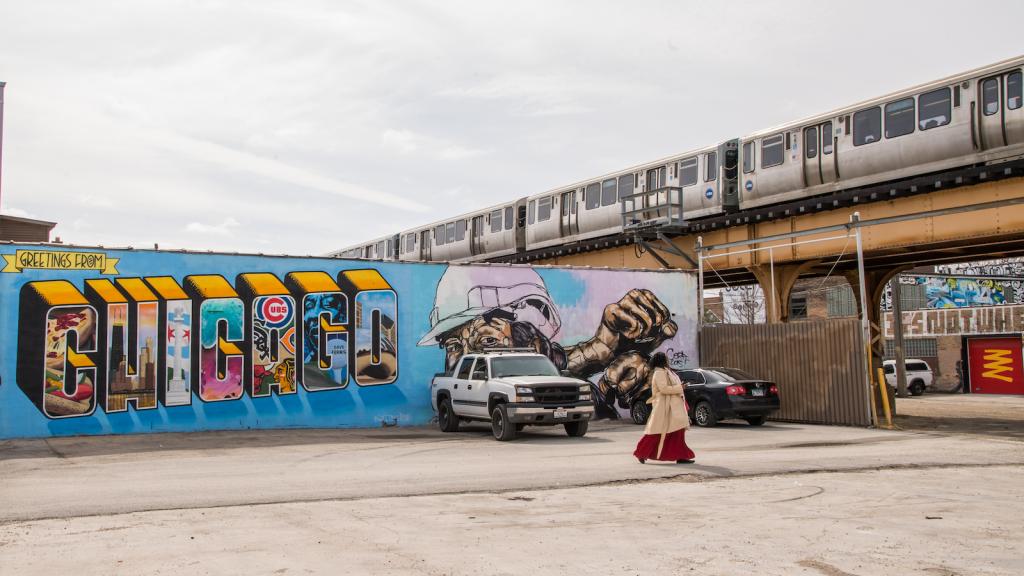 Desperate measures.My head nearly exploded at the breakfast table on Saturday morning.
Desperate measures.My head nearly exploded at the breakfast table on Saturday morning.
I was reading a piece in The New York Times about an Illinois developer who has finally found a way to unload the new houses he has built some 50 miles from downtown Chicago, in a place he has seen fit to dub a “Village of Yesteryear.”
When drastic price cuts weren’t enough to entice buyers, he decided to throw in $17,000 cash toward the purchase of a car with every house. (That money can only be spent at the local General Motors dealer, of course — because, let’s go U.S.A.!)
So this is what it has come to. Developers are now giving away vehicles to entice people to live in distant suburbs with life-draining commutes just when gas is hitting $5 a gallon. And a few consumers are biting — one is quoted as saying, “My money was in the bank, collecting very little interest, so I thought I might as well take a little gamble.”
Ah, yes, gambling on real estate. That’s the kind of anecdote that makes you feel confident about America’s economic future.
The article talks about how builders like Kim Meier, the guy behind the car giveaway, are having trouble moving their newly constructed homes in a market that is already glutted with buildings sitting empty:
Sales of new single-family homes in February were down more than 80 percent from the 2005 peak, far exceeding the 28 percent drop in existing home sales. New single-family sales are now lower than at any point since the data was first collected in 1963, when the nation had 120 million fewer residents.
Builders and analysts say a long-term shift in behavior seems to be under way. Instead of wanting the biggest and the newest, even if it requires a long commute, buyers now demand something smaller, cheaper and, thanks to $4-a-gallon gas, as close to their jobs as possible. That often means buying a home out of foreclosure from a bank.
Four out of 10 sales of existing homes are foreclosures or otherwise distressed properties. Builders like Mr. Meier who specialize in putting up entire neighborhoods on a city’s outskirts — Richmond is some 50 miles northwest of downtown Chicago — cannot compete despite chopping prices.
Which raises the question: Why is this guy building more houses way the hell out in the tenth ring of exurbs when he can’t sell the ones he already has? Maybe “putting up entire neighborhoods on a city’s outskirts” is not a good line of work to be in at the moment.
And aside from the fact that “new home starts” is the holy grail of economic indicators, what’s so terrible about Americans wanting to buy cheaper, already existing homes closer to their jobs? Isn’t that sensible? Isn’t that only the normal thing to do? Isn’t that what simple economics would tell us is a likely outcome of a market that has overbuilt homes in places where people don’t necessarily want to live, dependent on one sole mode of transport — the automobile — that is becoming ever-more expensive to fuel?
Those foreclosed homes that people are buying, many of them, were new just a few years ago. Should we now be throwing them away like used tissue paper because we had an economic downturn? What about making use of the resources we have already committed to those places — the roads, the sewers, the utilities? Once those things are built, people start paying taxes to maintain them, and keep paying taxes — whether they’re being used or not. Or are our very neighborhoods becoming disposable commodities, all so that we can keep notching “growth” on the economic chart?
Look, I understand that construction jobs are some of the only decent-paying blue-collar options left. But if homes are sitting empty and need to be rehabbed, is there any shame in doing that work instead of building subdivisions from scratch?
There are first- and second-generation suburbs across America that could potentially be retrofitted and redeveloped into the type of livable, walkable communities that so many consumers want. That would leave greenfields green and prevent the construction of more highways at a time when we can’t maintain the highways we have. And it would mean fewer visits to the pump.
For the last week, every time I have looked at the internet or turned on the radio, the ranting about gas prices has been there waiting. This time around, it’s usually accompanied with a teensy-weensy bit of self-awareness — an acknowledgment that the story has been cycling around for the last 30-plus years, and that the talking points have long ago been solidified.
But the next level of realization — that we need to fundamentally rethink the way our housing and transportation infrastructure are configured, and stop the sprawl — has for the most part yet to kick in.
As Transportation for America tweeted on Monday, “Next week, R’s will suggest expanding oil exploration & supply. D’s will try curbing ‘speculators.’ Both will completely ignore demand.”
It’s an atmosphere in which an NPR host can interview John Hofmeister, founder and CEO of the non-profit group Citizens for Affordable Energy and former CEO of Shell Oil, for six full minutes about “What is driving up oil prices” — and never once mention the role that sprawl development plays in increasing demand and shackling America’s citizens to a transportation system that is dependent on fossil fuels. In which the president, like that former oil exec, talks about alternative techologies and fuels, but not a rethinking of growth patterns.
An atmosphere in which the only way to sell a house is to throw in a free car. Because the person who gets that car won’t be thinking about the thousands upon thousands of dollars it will cost to fill it up over the years. Or the empty, angry hours spent on the road and in traffic.
Until it’s too late.
Update: Thanks to Midwest Energy News, who pointed out to me on Twitter that “Actually that development is so far from Chicago that it’s actually a few miles closer to Milwaukee.”



